6. High and Low (1963)
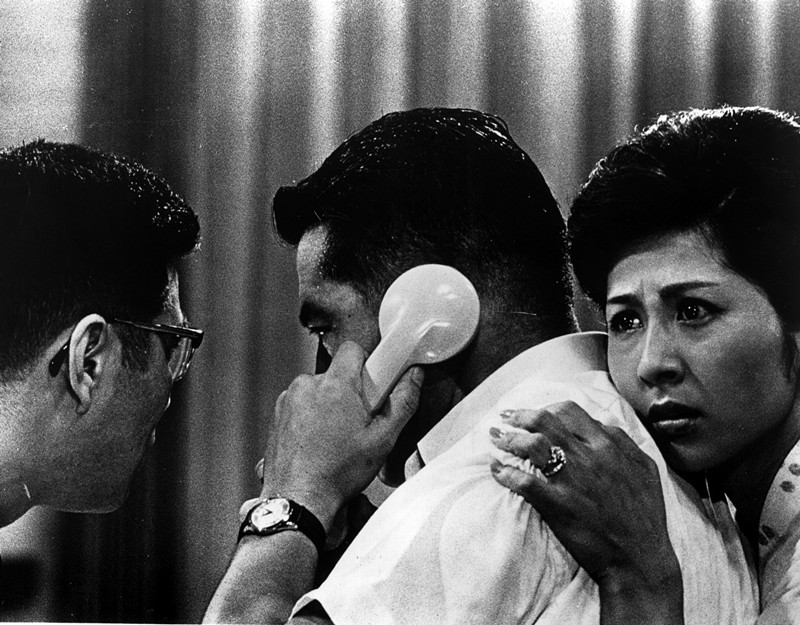
Chances are, if you’re watching a Coen movie, you’re bound to stumble upon an incompetent criminal, one who is often tasked with a high-stakes, illegal job only to fail miserably at it. From Fargo to Hail Caesar!, there’s no shortage of botched extortion attempts gone adrift, and exactly one serves as the set-up for this brilliant thriller by Akira Kurosawa.
High and Low opens with a wealthy shoe executive who just found out his son was kidnapped. The golden irony comes when he realizes that the kidnapper mixed up his target, mistakenly capturing his chauffeur’s son instead. This creates quite a moral dilemma for the distraught executive, who up to that point was determined to pay the huge ransom in order to retrieve his own son.
For a movie carrying so much in tension, especially one that almost exclusively takes place in one room, High and Low is a masterpiece at framing, where every character is kept on frame at all times creating a claustrophobic atmosphere. Through this twisted scenario, Kurosawa explored the social ridge between rich and poor, from out-of-touch tycoons to a bitter proletariat that holds them in contempt.
7. Sunset Boulevard (1950)
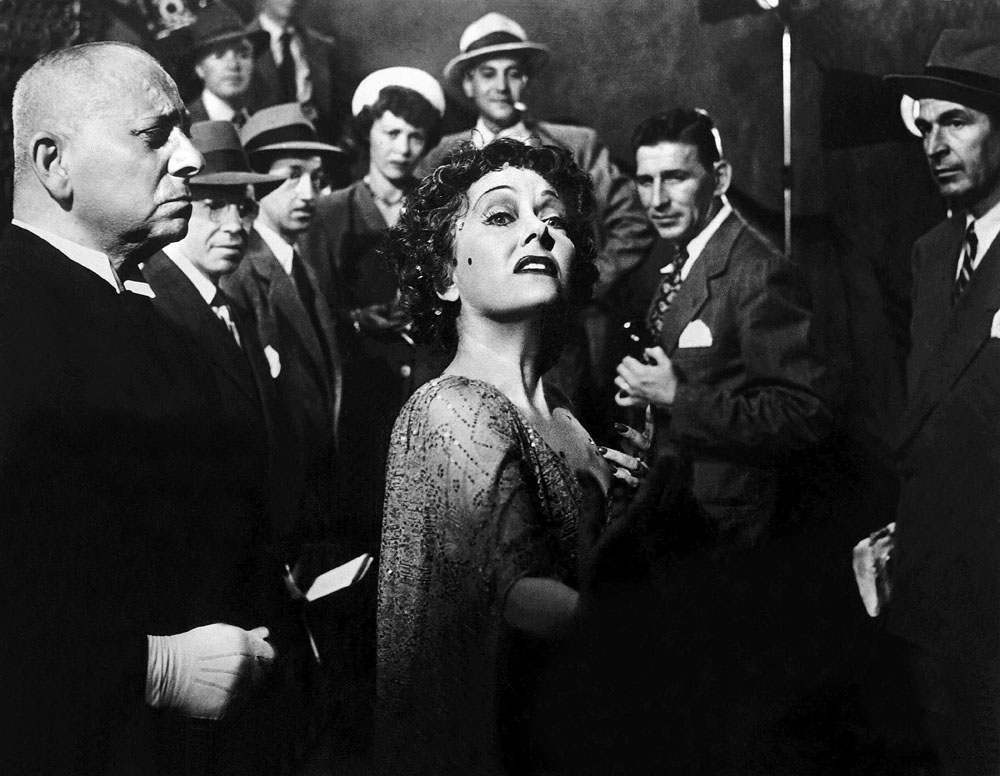
This Wilder’s classic follows Norma Desmond, a former actress trying to come to terms with her loss of fame and youth who befriends a successful screenwriter. In her head, Norma’s still the superstar of old, signing photos for her supposed fanbase and forever stuck in the past in her isolated mansion.
Billy Wilder’s take on Hollywood pokes fun at the decline of the studio era, and the poisonous star worship culture that its brightest stars are subject to, rising up only to leave their vacant thrones up to younger blood. There’s a sense of decay around the whole city as the unrelenting machine that keeps it alive claims yet another victim from a generation yearning for a long lost era.
The Coen are no strangers when it comes to portraying the artistic endeavors of struggling artists, from Barton Fink to Inside Llewyn Davis. Their movies also appear to hold Hollywood’s establishment in contempt, painting them as an oblivious and incompetent elite that constantly mistreats creators. But if there’s one that’s undeniably influenced by Sunset Blvd, it’s Barton Fink, their surreal drama set in the 40’s following an uninspired screenwriter trying to make it big in the city of angels.
8. The Third Man (1949)
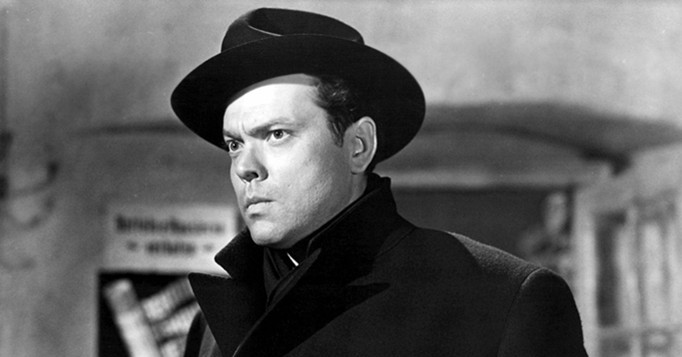
A writer of pulp Westerns arrives at Vienna, and what he encounters is not the artistic capital that sheltered intellectuals like Freud, Mozart or Beethoven, but a dark, decaying landscape ravaged by the horrors of World War II. Empty alleys soaked in rain, phantasmagoric Ferris wheels, shadowy streets and filthy sewers. By any means, Vienna is a dreadful city still recovering from a long ended war.
This British masterpiece by Carol Reed was a real game changer, starting with its bleak depiction of the old continent, something that was uncommon at the time. In an industry that leaned towards easily digestible escapism, Carol Reed made a thriller drenched in the style of German expressionism and American noirs with a big dose of cynicism, urban decay and moral ambiguity.
One could point to Orson Welles’ brilliant introduction, Robert Krasker’s sublime cinematography or that jaw-dropping ending as the thing that sets The Third Man apart, and none would be wrong. The Coen Brothers and Barry Sonnenfeld, their long-time director of photography, are said to have watched Reed’s masterpiece “on a loop” when coming up with their own twisted noir in Blood Simple, the Coens directorial debut.
9. Bonnie and Clyde (1967)
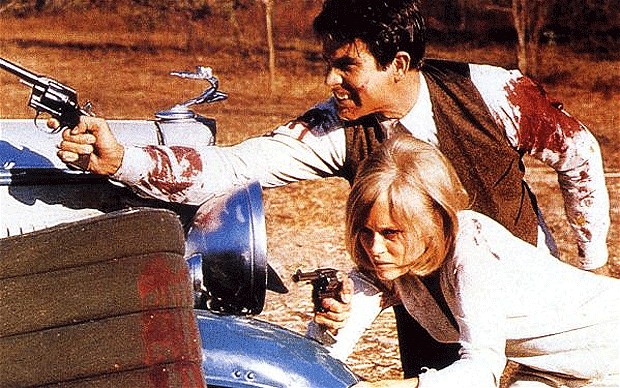
This movie follows one of the most notorious criminal couples in American history, Clyde Barrow and Bonnie Parker, two prolific bank robbers that became larger than life figures thanks to a high-profile coverage by the press that glorified their entire crime spree.
The movie itself is something of a milestone in American cinema too, especially in its unapologetic depiction of violence that was unheard of at the time and made it one of the most controversial releases of the 60’s. For all the efforts by certain conservative groups that lobbied against its release, Bonnie and Clyde marked a change of guard in Hollywood and paved the way to a wave of realistic and radical filmmaking that broke free from studio conventionalism.
Like every other road movie that came after, the essence of Bonnie and Clyde is found in the sense of untapped freedom of pursuing a life of riches while leaving all your problems behind (something that of course, proves to be futile at the end). Speaking of bombastic thrillers following an outlaw couple through the Midwest, the Coens’ own Raising Arizona definitely owes a great deal to Arthur Penn’s classic.
10. Blow Out (1981)
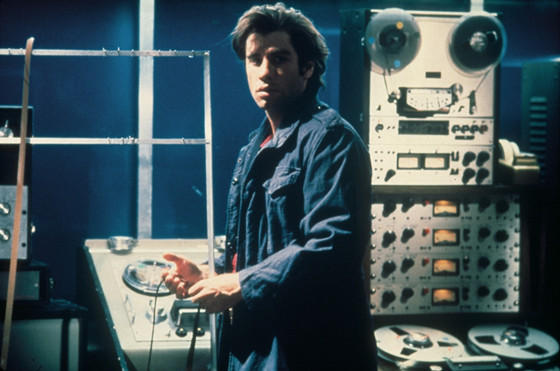
If you’re looking for a dark thriller gripping with style and knee-deep in paranoia, look no further than this Brian De Palma classic. For all his bombastic entry-level movies like Scarface or Carrie, De Palma has probably never been as effective and captivating as with this atmospherical, slow burn neo-noir.
Blow Out puts us in the shoes of Jack Terry, a sound effects technician for low-budget slashers who finds himself embroiled in a tangled web of conspiracy when he accidentally captures an incriminating audio involving the assassination of a presidential candidate. As the story goes on, Jack becomes obsessed with unraveling the mystery, piecing together his labyrinthine set of clues by creating a narrative between his recorded audios and photographs.
In a sense, Blow Out is a movie that’s just about uncovering a crime as it is about challenging our preconceptions and biases, and about filmmaking itself. Morbid curiosity can be a dangerous thing to have, and searching for the truth within a crooked system proves to be nothing short of a heroic feat.